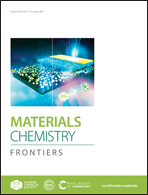Effect of β-nicotinamide mononucleotide on tumor formation and growth in a lung cancer mouse model
Abstract
Nicotinamide mononucleotide (NMN) is an essential precursor of nicotinamide adenine dinucleotide (NAD+), which is an essential coenzyme for various physiological processes including energy metabolism, DNA repair, and cell growth. NMN promotes tumor growth since it may fuel cancer cells via enhancement of NAD+ and plays a role in the prevention of liver and pancreatic cancers in mice. In the current study, the role of NMN in oncogenesis of lung cancer was investigated. To investigate whether NMN can prevent lung cancer formation, C57 mice were intraperitoneally injected with NMN daily for two weeks followed by subcutaneous injection of mouse lung cancer cells (LLC). Three weeks later, the tumor incidence and tumor size and volume were measured. To verify whether NMN can inhibit tumor growth, a xenograft model was constructed in nude mice. After intraperitoneal injection with NMN for three weeks, the mice's weight and tumor volume were measured. Then tumor slides were stained with hematoxylin–eosin (H&E) and immunostaining of Ki-67. Carcinoembryonic antigen (CEA) and tumor-associated inflammatory factors IL-1β, IL-6, TNF-α, and CXCL-12 were detected using enzyme-linked immunosorbent assay. After NMN treatment, the tumor formation rates in the two C57 mouse groups were both 100%. The tumor volume has no statistical difference between the NaCl control group and NMN treatment group. Immunohistochemical study of Ki67 in tumor sections from the two groups indicated that NMN does not affect the proliferation of tumor cells. The tumor volume in nude mice has no statistical difference either between the NaCl control group and NMN treatment group. NMN does not affect the proliferation of tumor cells in mouse subcutaneous tumors. However, it was found that the mice's weight was significantly reduced in the NMN treatment group. Carcinoembryonic antigens (CEA), interleukin-1β (IL-1β), interleukin-6 (IL-6), tumor necrosis factor-α (TNF-α), and stromal cell-derived factor 1 (CXCL-12) have no significant difference between the two groups. Our findings indicate that NMN does not prevent formation of lung cancer or restrain tumor growth in a mouse xenograft model, nor does it promote tumor growth. It was found that NMN can significantly reduce the weight of the nude mice.



 Please wait while we load your content...
Please wait while we load your content...